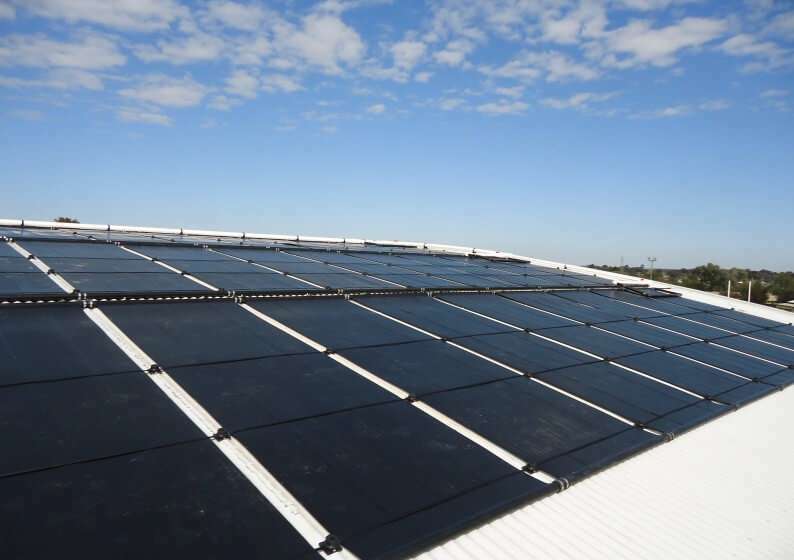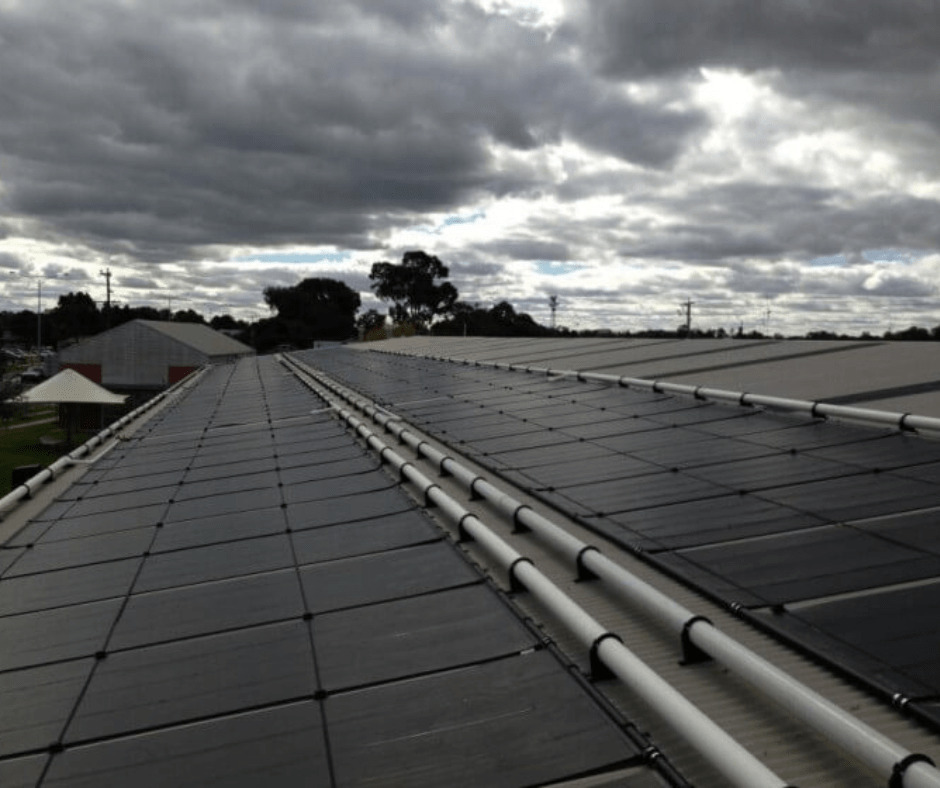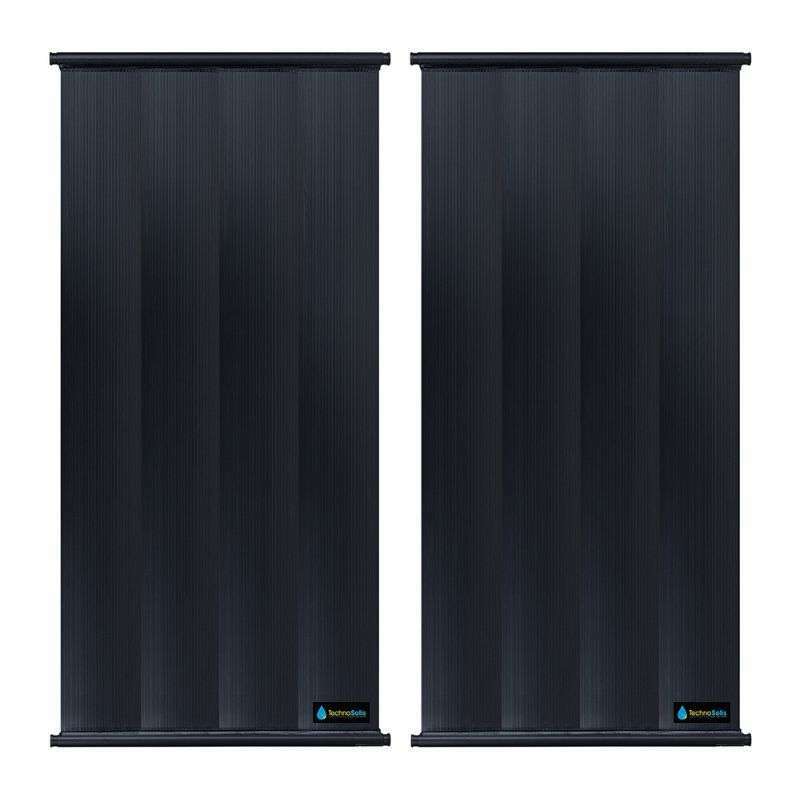$500 off Remodels and $1000 off Heaters for the month of January!
- Home
- Why Heat Your Pool with Solar

In today’s world, being eco-friendly and saving energy is key. The question “Why heat your pool with solar?” is more important than ever. Pool owners want to swim longer and cut down on carbon emissions. Solar pool heating is a great choice for these reasons.
But why is it so good? Let’s explore the amazing benefits that might surprise you.
Solar pool heating systems are a green and efficient way to enjoy your pool longer. They have key parts like solar collectors, a filter, a pump and a flow control valve. Water from the pool goes through the filter and collectors and get warmed by the sun before it goes back into the pool.
The solar collector is the core of a solar pool heating system. There are two main types:
Solar pool heaters use the sun’s energy to warm the water. As water flows through the collectors, it gets hotter from the sun’s heat. Then it goes back into the pool. An automatic controller keeps the pool’s temperature right, sending water to the collectors only when needed.
Glazed collectors work better in colder weather and can be used all year. Unglazed collectors are better for warmer areas. The choice depends on the climate and homeowner need.
The right solar collector depends on the pool’s location, climate, budget, and what the homeowner wants.
The advantages of solar pool heating are obvious. They save energy, extend swimming seasons and are easy to maintain. Plus, they’re good for the planet. Getting a solar pool heating system is a great way to improve your outdoor space.

Getting the right size and installation for solar pool heating is key. The solar collector size should be 50%-100% of the pool’s area. This depends on the climate and how long you want to swim.
In warm places like Florida, a 15×30 pool needs a 450 square foot system for all-year swimming. In cooler areas like northern California, pools used 6-8 months need 60%-70% of the pool’s area.
Solar pool systems can go on roofs or be ground-mounted. Think about the cost to install, maintenance, and local rules. A certified installer ensures it’s done right and meets regulations.
| Location | Typical Solar Collector Size |
|---|---|
| Florida (year-round use) | up to 100% of pool surface area |
| Northern California (6-8 months use) | 60-70% of pool surface area |
“The location of a home in relation to sunlight exposure is crucial for determining the effectiveness of solar pool heating systems.”
Getting a solar pool heater is a smart move with big benefits later on. The cost to set one up is between $1,500 and $8,000. This depends on the pool size, the solar collectors, and how hard it is to install.
Solar pool heating saves a lot on energy bills. It’s cheaper than gas or electric heaters because it uses the sun’s free energy. You can see savings in 1 to 3 years, based on fuel prices and sun availability.
The efficiency of solar pool heaters is measured in Btu or kilowatt-hours per square meter. Better efficiency means fewer panels, which can lower costs. To see how different systems stack up, use this formula: (Btu/day x number of collector panels) ÷ total installed cost.
Choosing a solar pool heater means big savings on energy bills and a good return on investment. Plus, you’ll be using clean, renewable energy to enjoy your pool longer.
Solar pool heating is a green and cost-saving way to enjoy your pool longer. It uses the sun’s energy to keep your pool warm even when it’s cooler outside. This means you can swim comfortably for more months.
These systems are easy to maintain and can last a long time. It’s a wise choice for those looking to save money and help the environment. Plus, they can even increase your home’s value.
The need for green and efficient solutions is rising. Solar pool heaters are becoming more popular. Thanks to government help, they are now more affordable. This makes them a great choice for anyone wanting to swim longer and reduce their carbon footprint.
A solar pool heating system has a few key parts. These include solar collectors, a filter, a pump and a flow control valve. Water from the pool goes through the filter and collectors. There the water gets heated before going back into the pool.
Solar pool heaters offer many benefits. They can cut heating costs by a lot. They also extend the swimming season and need little maintenance. Plus, they’re good for the environment.
To find the right size for your solar collector, consider a few things. The collector should be 50%-100% of your pool’s surface area. It should face true south in the northern hemisphere.
The cost of a solar pool heating system varies. It can be between